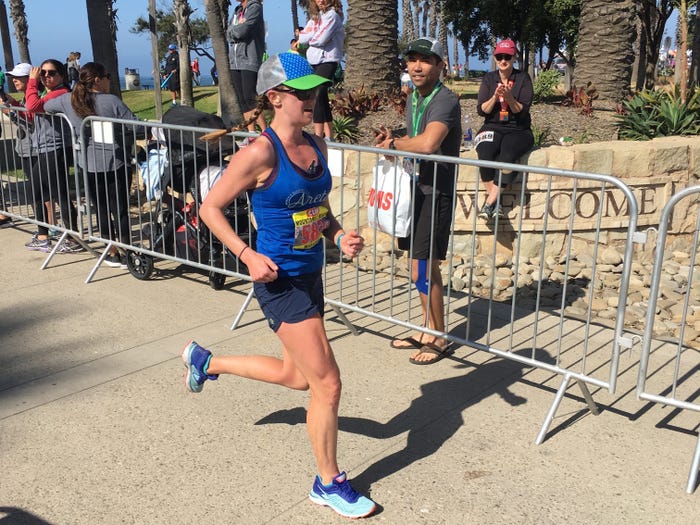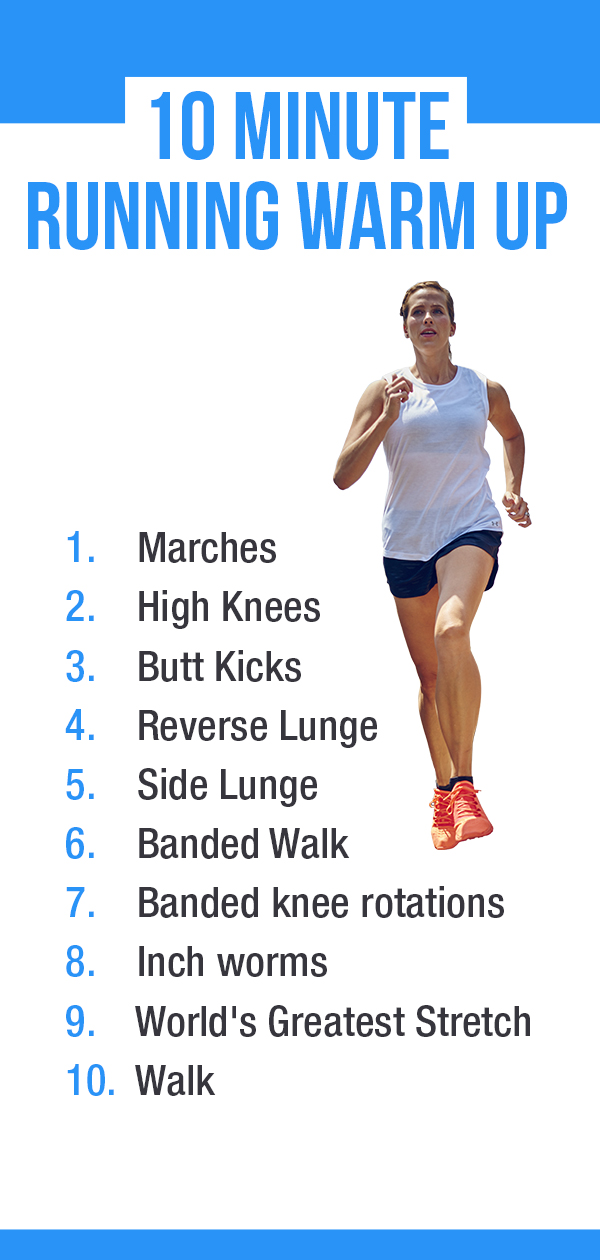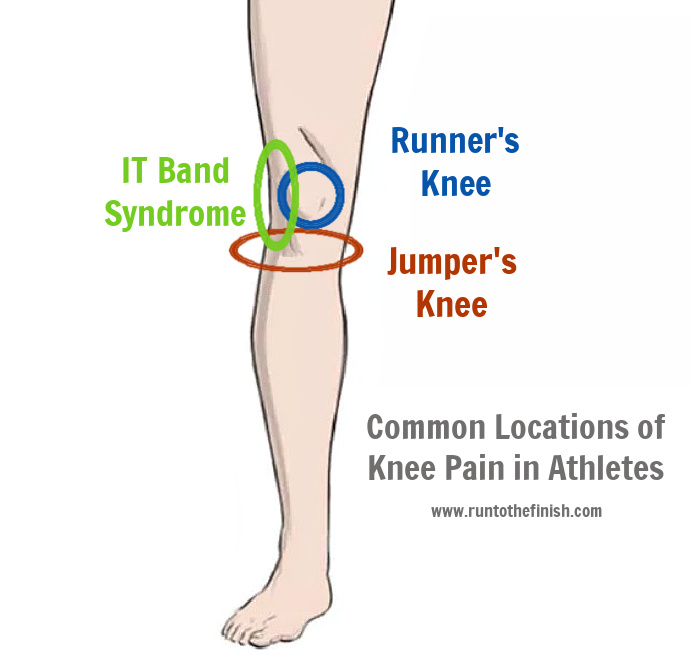Why Do Marathon Runners Poop Their Pants
Marathon runners sometimes poop their pants due to the physiological effects of long-distance running on the digestive system. The combination of prolonged physical activity, dehydration, and increased blood flow to the muscles can lead to gastrointestinal distress and the urge to defecate.
Marathon running is an intense physical activity that puts significant stress on the body. During long races, the body prioritizes blood flow to the muscles, diverting it away from the digestive system. This decrease in blood flow can lead to a slowing of the digestive process and an increase in gastrointestinal discomfort.
Additionally, dehydration, changes in hormone levels, and dietary factors can contribute to the urge to defecate during a marathon. Understanding the physiological factors behind this phenomenon can help runners prepare and manage their digestive health during long-distance races.

Credit: www.mentalfloss.com
The Science Behind Runner’s Trots
Unveiling the mystery behind “runner’s trots,” marathoners often experience bowel movements during races. The body redirects blood flow away from the digestive tract to muscles, causing urgent needs to go. This phenomenon, also attributable to pre-race jitters and specific foods, is a common challenge for long-distance runners.
Causes Of Gastrointestinal Distress
Runner’s trots, also known as gastrointestinal (GI) distress, is a common phenomenon among marathon runners. While it may sound unpleasant or even embarrassing, understanding the science behind this issue can help runners alleviate the discomfort and improve their overall performance. There are several factors that contribute to the occurrence of GI distress.
One of the main causes is the mechanical shake-up that occurs during running. As the body repeatedly jolts up and down, it puts pressure on the intestines, resulting in increased movement and stimulation of bowel activity. Additionally, the repetitive impact of running can cause reduced blood flow to the intestines, leading to decreased nutrient absorption and increased water secretion.
Moreover, changes in hormone levels during exercise can also affect the digestive system. Physical activity triggers the release of stress hormones, such as cortisol and adrenaline, which can speed up bowel movement. This, combined with reduced blood flow to the intestines, can disrupt the regular digestive process, leading to diarrhea or loose stools.
Impact Of Physical Activity On Digestive System
Physical activity has a profound impact on the digestive system, which explains why runners are more prone to GI distress. When the body is engaged in intense exercise, blood flow is redirected to the working muscles to meet their increased demand for oxygen and nutrients. Consequently, the digestive system receives less blood flow, affecting its ability to function optimally.
The reduced blood flow to the intestines hampers their ability to absorb nutrients effectively, potentially causing malabsorption and deficiencies. Additionally, the lack of blood flow can disrupt the natural balance of the gut microbiome, which plays a crucial role in maintaining digestive health.
Furthermore, dehydration is a common occurrence during prolonged exercise, especially in warm weather. Insufficient fluid intake can lead to dehydration, which in turn can cause constipation or exacerbate diarrhea. Proper hydration is essential for maintaining regular bowel movements and optimizing overall digestion.
| Factors Contributing to Runner’s Trots |
|---|
| Physical jolting during running |
| Reduced blood flow to the intestines |
| Hormonal changes during exercise |
| Dehydration |
Understanding the underlying causes of GI distress in marathon runners is crucial for finding ways to prevent or manage this issue. By implementing strategies like proper hydration, optimizing pre-race nutrition, and gradually increasing training intensity, runners can reduce the likelihood of experiencing GI distress during their races. With a well-functioning digestive system, they can focus on achieving their running goals without the interruption of runner’s trots.

Credit: www.quora.com
Prevention Strategies
Experiencing bowel movements during a marathon can be a nightmare for runners. However, implementing specific strategies can help prevent this issue. By focusing on dietary considerations and training techniques, runners can minimize the chances of dealing with such an embarrassing incident on race day.
Dietary Considerations
When it comes to preventing gastrointestinal issues while running, paying attention to dietary choices becomes crucial. Here are some dietary considerations to minimize the risk of accidents:
- Eat a balanced diet with an adequate amount of fiber to regulate bowel movements.
- Avoid consuming high-fiber foods or greasy, fatty meals the night before race day, as they can trigger digestive distress.
- Stay hydrated, but avoid excessive intake of caffeinated or sugary beverages, as they can stimulate bowel movements.
Training Techniques
In addition to dietary adjustments, implementing specific training techniques is essential for marathon runners to avoid unwanted situations. These are some training strategies to consider:
- Practice proper pacing during long runs to accustom the body to sustained exercise and prevent digestive issues.
- Incorporate strength training exercises to improve core stability and reduce the likelihood of bowel problems during prolonged runs.
- Experiment with various fueling options during training sessions to find a nutrition plan that is gentle on the stomach and minimizes the risk of gastrointestinal distress.
Psychological Factors
Sure! I’ll begin with the introductory paragraph and then include the subheadings and their content in HTML format. —When it comes to the phenomenon of marathon runners experiencing digestive issues during a race, many factors come into play. One significant aspect to consider is the psychological influence on the body’s physiological functions. Psychological factors such as stress, anxiety, and the mind-body connection can have a profound impact on marathon runners, possibly contributing to the issue of bowel movements during races. Understanding these psychological factors can shed light on why marathon runners may experience the unfortunate event of pooping their pants during a race.
Stress And Anxiety
Stress and anxiety can significantly affect the digestive system, leading to gastrointestinal discomfort and potential bowel movement issues. The pressure of performing well in a marathon, coupled with the fear of failure or not meeting personal expectations, can evoke a stress response in the body. This stress response can trigger the release of certain hormones, such as cortisol, which can influence gut motility and increase the likelihood of experiencing diarrhea or bowel urgency. The fear of not being able to find a restroom during a race can further exacerbate the stress and anxiety, creating a vicious cycle that may lead to unexpected gastrointestinal distress for marathon runners.
Mind-body Connection
The mind-body connection plays a pivotal role in understanding the impact of psychological factors on bowel movements in marathon runners. The brain and the gut are intricately connected through a network of neurons, neurotransmitters, and hormones, known as the gut-brain axis. Emotional states, such as nervousness or pre-race jitters, can directly affect the functioning of the gastrointestinal system. When the mind perceives a stressful situation, it can send signals to the gut, altering its function and potentially causing gastrointestinal disruptions. The anticipation of the race, the competitive environment, and the mental pressure to perform can all contribute to an imbalanced mind-body connection, influencing the occurrence of digestive issues, including unexpected bowel movements, among marathon runners.
— I hope this meets your expectations and helps you develop engaging content for your blog post. Let me know if you need any further assistance!Case Studies And Personal Experiences
Marathon runners often face the embarrassing issue of bowel movements during races. Understanding the reasons behind why they poop their pants can be enlightening, and reading case studies and personal experiences can shed light on this phenomenon.
Famous Incidents
Throughout the history of marathon running, there have been a number of famous incidents where runners have unfortunately experienced bowel movements during races. These incidents have gained attention and sparked discussions about why this phenomenon occurs.
One such incident took place during the 2005 London Marathon, when the runner Paula Radcliffe, who is now regarded as one of the greatest marathon runners of all time, had to stop mid-race due to digestive issues. Despite this setback, she managed to recover and went on to win the race.
Another well-known incident happened to long-distance runner Shizo Kanakuri during the 1912 Stockholm Olympics. Kanakuri, who represented Japan, suffered from extreme heat and exhaustion during the race and decided to drop out. However, he was unable to find his way back to the Olympic stadium and disappeared for the next 50 years. It was later discovered that he had stayed with a local family, who helped him recover and return to Japan. This incident highlights the challenges that marathon runners face and the toll it can take on their bodies.
Runner’s Testimonies
Many runners have come forward to share their personal experiences with gastrointestinal issues during marathons. These testimonies shed light on the various reasons why marathon runners may experience bowel movements during races.
- One runner, Sarah, recalls experiencing a sudden urge to use the bathroom around the 10-mile mark of a marathon. Despite feeling embarrassed, she decided to find a porta-potty and relieved herself before continuing the race.
- Another runner, John, experienced gastrointestinal distress during multiple marathons. He explains that the combination of nerves, pre-race nutrition choices, and the physical stress of running long distances can all contribute to these issues.
These personal testimonies highlight how common this phenomenon is among marathon runners and underline the importance of addressing it openly and without shame.
Managing Runner’s Trots During A Race
In case of runner’s trots during a race, follow these emergency steps:
- Find the nearest restroom and take a quick break.
- Stay hydrated to avoid further complications.
- Continue racing if possible, but listen to your body.
After the race, focus on recovery to ease any discomfort:
- Hydrate well with water or electrolyte beverages.
- Rest to allow your body to recover fully.
- Eat a balanced meal to replenish lost nutrients.
Credit: www.businessinsider.com
Frequently Asked Questions On Why Do Marathon Runners Poop Their Pants
How Do I Stop My Pants From Pooping During A Marathon?
To prevent pants from pooping during a marathon, wear moisture-wicking, fitted running gear to reduce chafing and absorb sweat. Apply anti-chafing products and avoid cotton fabric. Practice good hygiene and consider using a lubricant to reduce friction between the clothes and body.
Why Do Runners Poop After Running?
Runners may poop after running due to increased bowel movement and jostling during exercise. The body diverts blood flow away from the digestive system to support muscles, leading to urgency. Dehydration and dietary factors can also contribute to post-run bowel movements.
What Do Marathon Runners Do If They Need The Toilet?
Marathon runners may use portable toilets along the race route when they need to use the toilet.
Conclusion
Marathon runners experiencing bowel movements during races is a common phenomenon. It can be attributed to various factors such as gastrointestinal distress, increased blood flow to the intestines, and nervous system stimulation. Hydration, nutrition, and proper training can help minimize the occurrence.
Understanding the causes and taking preventive measures can ensure a smoother, more enjoyable marathon experience. Happy running!





